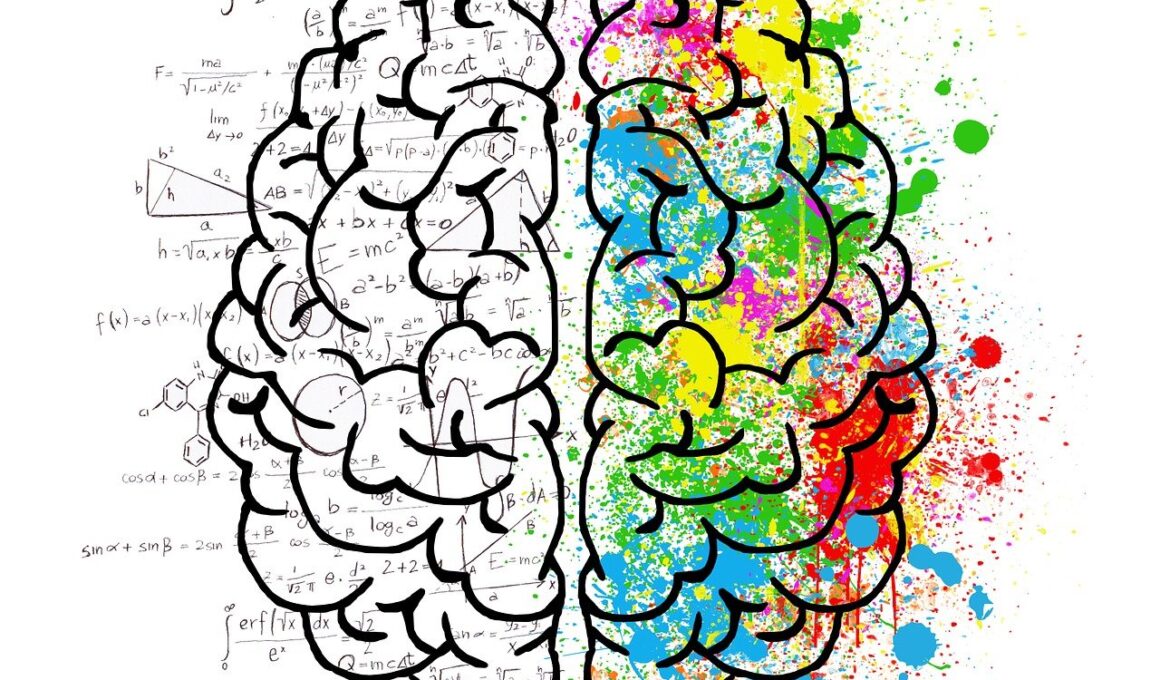Understanding Pre-Race Mental Routines
The journey towards a successful swim competition starts long before swimmers dive into the pool. Developing a pre-race mental routine is vital for athletes at all levels of swimming. This routine serves to mentally prepare swimmers, allowing them to consolidate skills and manage anxiety effectively. Elements of this routine can include visualization techniques, breathing exercises, and affirmations. Visualization involves imagining the upcoming race, focusing on a successful performance, and envisioning how to execute each stroke. Swimmers who engage in this practice often feel a sense of familiarity on race day, reducing pre-competition nerves. Additionally, breathing techniques help manage anxiety by promoting relaxation. Simple deep-breathing exercises before the start help calm racing hearts and sharpen focus. Affirmations—positive statements that reinforce confidence—can also mitigate self-doubt. Swimmers can use phrases like “I am strong, I am prepared, I will succeed” repeated during their routine. By addressing psychological obstacles, athletes create a mindset conducive to peak performance. Overall, a structured mental routine enables competitive swimmers to face challenges and embrace the race with confidence.
Consistency and commitment are key factors in the effectiveness of the pre-race routine. To see significant benefits, swimmers need to practice their mental strategies regularly in training sessions, similar to their physical techniques. This consistency builds a mental framework that becomes second nature, allowing athletes to move seamlessly into their routines under racing conditions. Beginning to implement these techniques during practice can be hugely advantageous. Coaches should encourage swimmers to utilize their mental routines before competitions, promoting a culture of mental wellness alongside physical training. Another essential aspect of an effective routine is determining what works best for the individual swimmer. Each athlete is unique; therefore, a personalized approach is critical. Swimmers should experiment with different strategies, noting their feelings and performance outcomes associated with each practice. Keeping a journal assists in evaluating what strategies are most effective and helps in refining their mental routine. By keeping track of their emotional responses and successes related to their mental preparation, swimmers can make informed adjustments. With guidance, swimmers can develop strategies that enhance their focus, control, and ultimate performance on race day.
Overcoming Pre-Race Anxiety
For many swimmers, anxiety before a race can be a substantial hurdle. This psychological barrier can hinder performance if not properly managed. A crucial aspect of the pre-race routine should thus prioritize techniques aimed at reducing anxiety. Engaging in self-talk is one strategy swimmers can employ; this involves replacing negative thoughts with positive affirmations. Encouragement like affirming a swimmer’s skills and past successes can transform nervous energy into confidence. Focusing on the process rather than the outcome can also be pivotal. Swimmers should direct their attention to their race execution, controlling aspects like technique and breathing rather than fixating on competition results. Another approach involves the integration of relaxation practices. Mindfulness meditation and gentle stretching, for instance, can ease tension in preparation for racing. Additionally, pre-race rituals—such as specific warm-up routines or listening to music—signal readiness to athletes’ minds and bodies. When swimmers create a familiar environment, it can help allay fears associated with performance. It’s essential for swimmers to understand that feelings of anxiety are normal and can be transformed into a motivating factor instead of an impediment.
Building resilience is another important benefit of a consistent pre-race mental routine. Over time, athletes learn to cope better with unexpected challenges during competitions, including slow starts, disqualifications, or fatigue. Regularly practicing mental routines can make an athlete better equipped to handle competitive stressors, as they can rely on their mental training during tough moments. Developing resilience not only enables swimmers to recover more quickly from setbacks but also strengthens their overall mental toughness. Mental conditioning allows swimmers to foster a positive outlook, enabling them to look at challenges as opportunities for growth. Swimmers can enhance their focus through specific goal-setting techniques, concentrating on achievable short-term objectives instead of long-term expectations. Breaking down races into manageable segments can assist swimmers in staying mindful and present throughout the competition, enhancing their performance. Furthermore, as athletes practice race scenarios in their minds, they increase their familiarity with the pressures of competition. By accepting discomfort as simply a part of racing, swimmers can embrace each experience fully. The ultimate goal is to ensure that mental routines contribute to an athlete’s ability to perform under pressure consistently.
Focus and Concentration Techniques
Central to the effectiveness of a pre-race mental routine is developing focus and concentration. Swimmers must learn to direct their attention precisely to what is required during a race. Techniques for achieving focus can include setting specific performance cues or mental checkpoints. These might consist of reminding themselves of essential technique elements during the race, like maintaining a streamlined body position or a powerful kick. Swimmers should practice incorporating these cues into their training. This familiarity means that when they feel pressure on race day, they can more easily recall reaffirming thoughts. Visualization also plays a vital role in enhancing focus. Athletes should visualize their race strategy, focusing on execution rather than competitors. Imagine swimming through each lap and feeling the water’s rhythm; this will facilitate concentration while minimizing distractions from external factors. Additionally, engaging in breathing exercises can help ground swimmers when feeling overwhelmed. Counting breaths align swimmers back to their performance, promoting laser focus. Employing these focus-enhancing techniques during training can significantly improve mental clarity and concentration during the race, allowing swimmers to perform at their best.
Another aspect often linked to effective pre-race routines is the role of teamwork and support. Swimmers should consider involving coaches, teammates, and family members in their mental preparation. Each person can play a vital role in contributing to the swimmer’s confidence. Encouragement from teammates can reinforce an athlete’s mindset, while coaches provide strategic advice tailored to the swimmer’s needs. Building this support network helps cement an athlete’s sense of camaraderie. Furthermore, discussing mental routines with others can facilitate sharing experiences, revealing diverse perspectives on managing race anxiety and boosting confidence. Swimmers can benefit greatly from observing how peers conduct their pre-race rituals, gathering techniques that resonate with them. Finding a mentor tone or positive influence in this journey is invaluable. Swimmers should seek those who inspire them and who reinforce healthy mental habits. By fostering these supportive relationships, athletes create an environment that cultivates a positive mindset and a culture of growth. This collaborative effort emphasizes the importance of mental health as a key element in achieving sports success.
Conclusion: The Importance of Mental Preparation
Ultimately, developing a pre-race mental routine is crucial in the swimming world. This routine is not merely a practice; it significantly shapes the health of the athlete’s mind during competitions. Swimmers who build mental resilience are likely to perform better, as they can manage anxiety and maintain focus throughout races. It’s essential for swimmers to invest the time to create personalized mental routines that work for them. Through consistency, they develop effective coping strategies for managing pressure and anxiety. With a comprehensive approach that includes visualization, self-talk, goal-setting, and support systems, athletes can prepare mentally to achieve their best performances. Teams and coaches play a significant part by instilling mental techniques that confirm swimmers’ competencies and highlighting their growth mindset. The journey of mental preparation can be incredibly rewarding, not just for competitive results but for enhancing overall well-being. Swimmers should prioritize mental health alongside physical conditioning as they prepare for competitions. By doing so, they set themselves up for success, ensuring that they approach the swim with confidence and the skills needed to excel.
In an ever-changing sports landscape, the significance of mental preparation cannot be understated. As age and competition evolve, so too must the psychological strategies that swimmers employ. A pre-race routine tailored to individual needs promotes sustained growth. By adapting techniques learned from experiences, swimmers remain at the forefront of their sports performance. Embracing the mental discipline required to implement these strategies consistently requires commitment but ultimately pays dividends in performance. Developing a pre-race mental routine that is dynamic yet structured helps foster resilience and is essential in a competitive field. Handling the pressures of competitions efficiently requires a mindset geared towards improvement, preparing athletes for challenges. Swimmers prepared for the rigors of competition, both mentally and physically, will be better equipped to meet their goals and push their limits. This ultimately reflects on the athlete’s overall growth and passion for swimming.


